AI Agents on Blockchain
AI agents on blockchain are transforming industries with decentralized intelligence, automation, and transparency.

In the rapidly evolving landscape of technology, two of the most transformative innovations of the 21st century—Artificial Intelligence (AI) and blockchain—are converging to create a new paradigm: AI Agents on Blockchain. This fusion promises to revolutionize industries, redefine trust, and unlock unprecedented levels of automation and efficiency. But what exactly are AI agents on blockchain, and why are they poised to become the backbone of the next generation of digital ecosystems?
In this blog, we’ll explore the concept of AI agents operating on blockchain networks, their potential applications, and the profound implications they hold for the future of decentralized intelligence.
What Are AI Agents on Blockchain?
AI agents are autonomous software entities that can perform tasks, make decisions, and interact with their environment without human intervention. Moreover, when these agents are deployed on blockchain networks, they gain unique capabilities such as transparency, immutability, and decentralized governance.
Blockchain, at its core, is a distributed ledger technology that ensures data integrity and trust through consensus mechanisms. By integrating AI agents with blockchain, we create a system where intelligent algorithms can operate in a secure, transparent, and tamper-proof environment. As a result, this synergy enables AI agents to execute complex tasks, manage assets, and interact with other agents or humans in a trustless and decentralized manner.
Key Features of AI Agents on Blockchain
- Decentralization: Unlike traditional AI systems that rely on centralized servers, AI agents on blockchain operate across a distributed network. This eliminates single points of failure and reduces the risk of data manipulation.
- Transparency and Trust: Every action performed by an AI agent on a blockchain is recorded on an immutable ledger. This transparency ensures accountability and builds trust among users.
- Autonomy and Smart Contracts: AI agents can execute predefined rules encoded in smart contracts. These contracts automatically enforce agreements, enabling seamless and autonomous interactions.
- Incentivization: Blockchain networks often use tokens or cryptocurrencies to incentivize participation. AI agents can earn rewards for performing tasks, creating a self-sustaining ecosystem.
- Interoperability: AI agents on blockchain can interact with multiple platforms and protocols, enabling cross-chain functionality and fostering collaboration across ecosystems.
Applications of AI Agents on Blockchain
The combination of AI and blockchain opens up a world of possibilities across various industries. Here are some groundbreaking applications:
- Decentralized Finance (DeFi): AI agents can optimize trading strategies, manage portfolios, and provide personalized financial advice in a decentralized manner. They can also detect fraudulent activities and ensure compliance with regulatory requirements.
- Supply Chain Management: AI agents can track goods, verify authenticity, and predict demand in real-time. Blockchain ensures that every transaction is recorded, creating a transparent and efficient supply chain.
- Healthcare: AI agents can analyze patient data, recommend treatments, and manage medical records securely on a blockchain. This ensures data privacy and enables seamless sharing of information among healthcare providers.
- Autonomous Vehicles: AI agents can manage the operations of self-driving cars, including navigation, traffic management, and payment for services like tolls or charging stations. Blockchain ensures secure and transparent communication between vehicles and infrastructure.
- Digital Identity: AI agents can manage and verify digital identities on a blockchain, reducing the risk of identity theft and enabling secure access to services.
- Energy Trading: In decentralized energy grids, AI agents can optimize energy distribution, predict consumption patterns, and facilitate peer-to-peer energy trading using blockchain.
Challenges and Considerations
While the potential of AI agents on blockchain is immense, some challenges need to be addressed:
- Scalability: Blockchain networks must handle the computational demands of AI agents without compromising speed or efficiency.
- Privacy: Balancing transparency with data privacy is crucial, especially in sensitive applications like healthcare.
- Regulation: The decentralized nature of blockchain poses challenges for regulatory compliance, particularly in industries like finance and healthcare.
- Interoperability: Ensuring that AI agents can operate across different blockchain platforms requires standardized protocols and frameworks.
- Ethical Concerns: The autonomy of AI agents raises ethical questions about accountability, bias, and decision-making.
The Road Ahead
The integration of AI agents and blockchain is still in its early stages, but the potential is undeniable. As technology advances, we can expect to see more sophisticated AI agents operating on increasingly scalable and interoperable blockchain networks.
Furthermore, this convergence will not only enhance the capabilities of AI but also democratize access to intelligent systems, empowering individuals and organizations to participate in a decentralized digital economy. In fact, the future of decentralized intelligence is bright, and AI agents on blockchain are at the forefront of this revolution.
Conclusion
AI agents on blockchain represent a paradigm shift in how we think about automation, trust, and intelligence. By combining the autonomous capabilities of AI with the transparency and security of blockchain, we are creating a new era of decentralized intelligence that has the potential to transform industries and improve lives.
However, as we continue to explore this exciting frontier, it’s essential to address the challenges and ethical considerations that come with it. Ultimately, the future of AI and blockchain is not just about technology, it’s about building a more transparent, efficient, and equitable world.
Date
6 months agoShare on
Related Blogs

Decentralized Exchanges: The Future of Trading or a Passing Trend?
1 day ago

Web3 Super Apps: The Next Generation of All-in-One Blockchain Platforms
2 days ago

How dApps Are Disrupting Traditional App Ecosystems
4 days ago

The Impact of AI on Blockchain Fraud Detection
8 days ago








